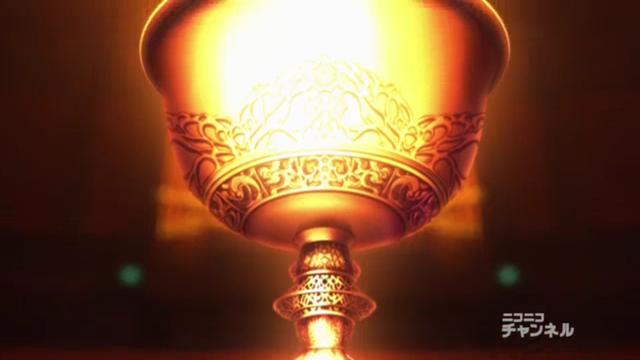Introduction
LegacySC
[Editor]
- Location
- ?
Faux/Rupere Saeculi

This is the Holy Grail, an artifact of immense power that can grant you a single wish, if you successfully earn it.
How do you earn this wish? Well, if you're here, you should already know that. In fact, I'll even be nice and remind you.
You have to kill, or be killed. Yes, kill. You know, end their lives? Stab them in the heart? Of course, it won't be that easy for all of them.
Oh, stop dry heaving and get over it already.
You'll have experienced worse by the time this is over.
You've heard of this competition before? The Holy Grail War you say? That's interesting, but I can't say anything other than the concept is the same in this world. It's not as barbaric as a 'war' of all things. That's why we call it the Competition.
Don't listen. Don't watch. Don't believe.
I'm sure you'll figure it all out as you go on. Hurry now. Don't keep the other Summoners waiting. Go and claim your Hero.

Welcome to Faux/Rupere Saeculi, another contribution to the Fate Singularity.
To join this, we will require a number of Summoners and Heroes. You can either register as a Summoner or as a Hero. The system being used is essentially a modified Fate system, but the world is... much more different.
Registrations Details Here.
Please read the Player List for a list of active players and open classes.
We are currently undergoing a reboot. Now accepting new players.

This is the Holy Grail, an artifact of immense power that can grant you a single wish, if you successfully earn it.
How do you earn this wish? Well, if you're here, you should already know that. In fact, I'll even be nice and remind you.
You have to kill, or be killed. Yes, kill. You know, end their lives? Stab them in the heart? Of course, it won't be that easy for all of them.
Oh, stop dry heaving and get over it already.
You'll have experienced worse by the time this is over.
You've heard of this competition before? The Holy Grail War you say? That's interesting, but I can't say anything other than the concept is the same in this world. It's not as barbaric as a 'war' of all things. That's why we call it the Competition.
Don't listen. Don't watch. Don't believe.
I'm sure you'll figure it all out as you go on. Hurry now. Don't keep the other Summoners waiting. Go and claim your Hero.

Welcome to Faux/Rupere Saeculi, another contribution to the Fate Singularity.
To join this, we will require a number of Summoners and Heroes. You can either register as a Summoner or as a Hero. The system being used is essentially a modified Fate system, but the world is... much more different.
Registrations Details Here.
Please read the Player List for a list of active players and open classes.
We are currently undergoing a reboot. Now accepting new players.
Last edited:

